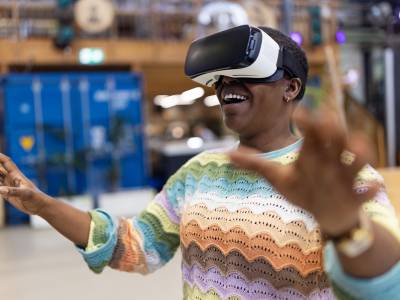The digital provision of MBA courses has proliferated over the past few years of pandemic turmoil, with the Covid lockdowns forcing even full-time MBAs to be delivered online. This points to a shift in attitudes towards online learning, with much of the early stigma now being erased.
There is still skepticism, however, about whether Online MBAs give students as rich an experience as traditional residential programs. Are you really getting the same degree, or are there trade-offs to consider?
Not every online program is the same. Applicants need to do their research as they decide which format and which school are best for them. The pandemic sparked growth in Online MBAs, with more of the top brand schools creating digital courses as acceptance in the student population grows.
This means more choice of degree provider and more flexibility in how you learn. But how to differentiate between courses?
An MBA for your needs
Matt Hente, Senior Associate Director of Student Engagement at UNC Kenan-Flagler Business School, insists that in all of the programs put on by the institution — Full-Time MBA, Evening Executive MBA, Weekend Executive MBA, Charlotte Executive MBA and online MBA@UNC — participants will earn the same degree.
What varies is the format and the location of where they study and whether they want an on-campus experience or want to continue working while they earn their MBA. Hente says: “The key differences are that full-time students are on campus in Chapel Hill for their studies and do not hold full-time jobs. Our [online] students study wherever they are in the world and work full-time, with the flexibility to participate in a wide variety of [studies].”
The challenge is balancing a heavy workload with a rigorous academic curriculum. Online students are typically working professionals who average 10 years of experience before pursing their MBA. “Most MBA@UNC students complete the program in 24 months, but can take up to 36 months, which provides the extra flexibility that working-professional students need when managing their personal life, professional responsibilities and a rigorous business graduate program,” says Hente.
Full-time students participate in more extracurricular activities, such as clubs and events, since they’re immersing themselves in this learning experience fully for two years. How do schools aim to recreate the opportunities for social bonding and professional networking in an online learning environment?
Virtual job fairs, mock interviews, and more
At Maryland University’s Robert H. Smith School of Business, Online MBAs participate in virtual job fairs and mock interviews facilitated by the Office of Career Services. In addition, live sessions via Zoom are part of every course, with students encouraged to keep their cameras turned on so everyone can see one another’s reactions during discussions.
“These sessions typically include virtual breakout rooms for small group discussions. Collectively, this format works to increase self-awareness and aptitude for collaborating and exchanging knowledge with peers,” says Paulo Prochno, interim associate dean of master’s programs at Smith.
He insists that the online program provides exactly the same MBA degree, but with changes in the sequence of courses and format of delivery. A key, supporting factor at Maryland Smith is that Online MBA students collaborate with the same faculty who deliver the school’s on-campus programs.
Hente at UNC points out that online students don’t just watch lectures; they interact with and learn from classmates and their professors in live classes, in study groups, simulations and experiential learning, such as consulting projects and case competitions.
Students also have the option to attend an in-person orientation in Chapel Hill, to meet UNC Kenan-Flagler faculty and to network. “This three-day course provides excellent opportunities for new students to meet each other and establish personal connections with other working professionals even before their first online class,” she says.
But ultimately, online courses serve a different audience. “The core difference is how our students prefer to pursue their education,” says Ash Soni, executive associate dean for academic programs, at the Indiana University Kelley School of Business.
“For some, they feel the immersive experience of our full-time program benefits them more, as they look to reset their career path. They appreciate surrounding themselves with support they receive in person from faculty, their fellow students and alumni who return to offer their insights and perhaps their next professional opportunity.”
Yet many others don’t want to take a break from their careers and want to apply what they’re learning in their current corporate roles. These candidates will pick an Online MBA.
“Most are looking to advance in their organizations, although we are seeing more career switchers interest in our online program,” says Soni. “We’ve worked hard to establish for our online students the same sense of community also found in our residential program. Technologies will make the teaching experience even more intimate and direct.”










